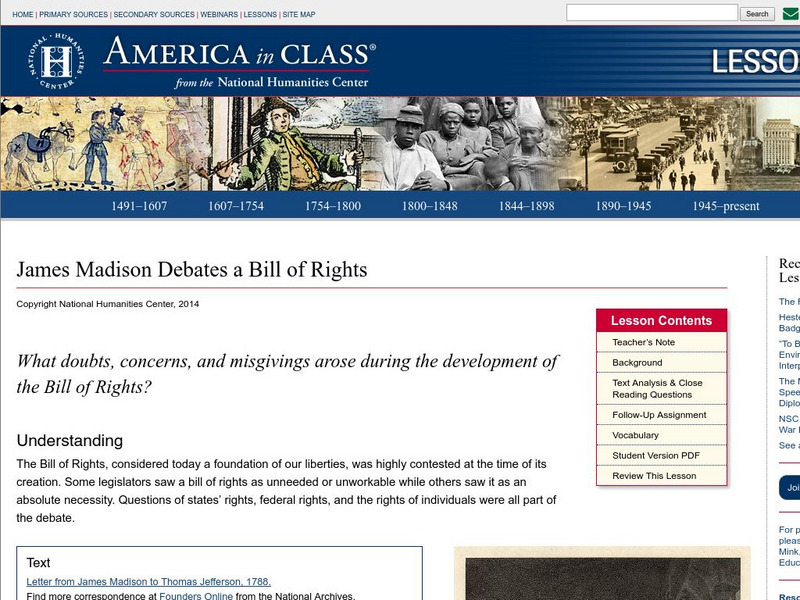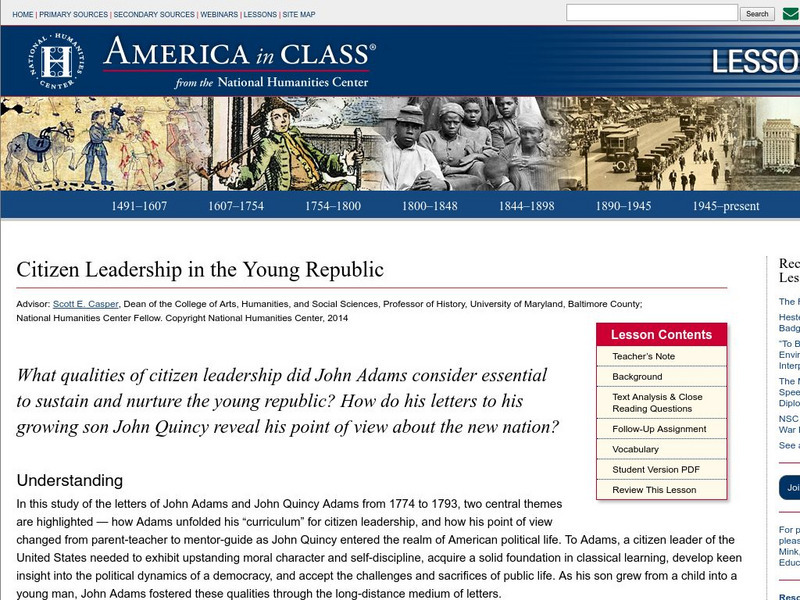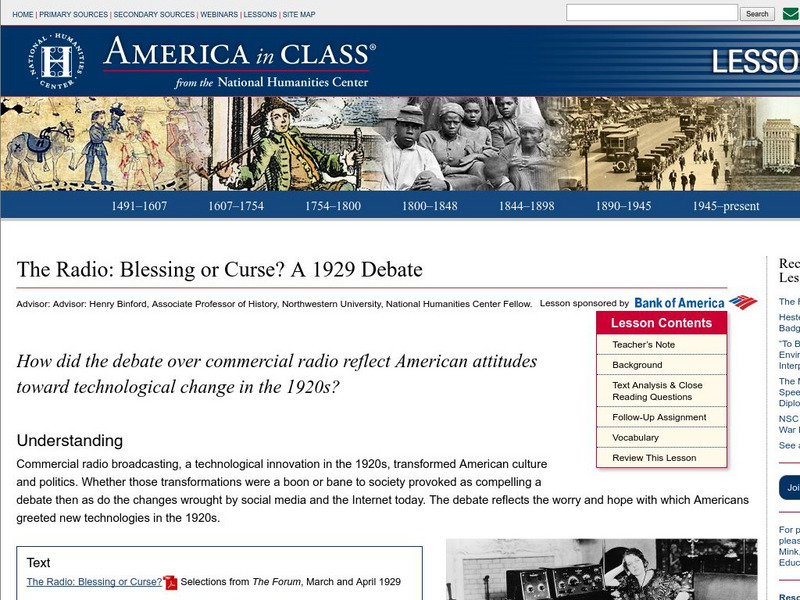Thomas Jefferson National Accelerator Facility
Jefferson Lab: Reading Passages: Microscope
Read and fill in the blanks of this passage discussing the invention of microscopes. Each blank has a dropdown menu with choices. When you finish, click CHECK MY ANSWERS. If you pick a wrong answer, the right answer will be displayed...
Thomas Jefferson National Accelerator Facility
Jefferson Lab: Reading Passages: Soil
Read and fill in the blanks of this passage explaining soil. Each blank has a dropdown menu with choices. When you finish, click CHECK MY ANSWERS. If you pick a wrong answer, the right answer will be displayed along with your choice.
Thomas Jefferson National Accelerator Facility
Jefferson Lab: Reading Passages: Who Eats What
Read and fill in the blanks of this passage explaining who eats what. Each blank has a dropdown menu with choices. When you finish, click CHECK MY ANSWERS. If you pick a wrong answer, the right answer will be displayed along with your...
Read Works
Read Works: Read Aloud Lesson: Where Do Polar Bears Live?
This lesson is a close reading of "Where Do Polar Bears Live?". After reading the book to the class, students will be able to identify and recall characteristics that allow polar bears to survive in an extremely cold Arctic environment....
Stanford University
Sheg: Document Based History: Reading Like a Historian: Historical Thinking
[Free Registration/Login Required] This chart elaborates on the historical reading skills of sourcing, corroboration, contextualization, and close reading. In addition to questions that relate to each skill, the chart includes...
Stanford University
Sheg: Document Based History: Reading Like a Historian: Soldiers in Philippines
[Free Registration/Login Required] Learners read primary source documents to solve a problem surrounding a historical question. This inquiry lesson allows students to use close reading skills to read a variety of primary source...
Stanford University
Sheg: Document Based History: Reading Like a Historian: Homestead Strike
[Free Registration/Login Required] Students solve a problem surrounding a historical question by reading primary source documents. This historical inquiry lesson allows students to use the historical thinking skills of corroboration,...
Constitutional Rights Foundation
Constitutional Rights Foundation: Margaret Thatcher and Conservative Politics in England [Pdf]
Resource on the political life of England's Prime Minister Margaret Thatcher and how her conservative politics stirred controversy as well as praise. Students can read and analyze excerpts from Thatcher's speeches. Site includes...
British Library
British Library: 20th Century Teaching Resources: T S Eliot's the Waste Land
Through close reading of "The Waste Land" in its original manuscript form, students will explore how the poem evolved in the process of editing. By reading contemporary letters and reviews, students will be guided towards a more informed...
Vassar College
1896: Election Results
The outcome of the popular vote for president in 1896 was close. Read about the electoral votes, see maps showing the popular vote for McKinley and Bryan, and follow the chart that shows the votes for all those running for president....
National Humanities Center
National Humanities Center: America in Class: The Columbian Exchange
Lesson on the Columbian Exchange and the unintended consequences that resulted. Lesson includes teacher's notes, primary or secondary sources, background, strategies for analysis and Close reading, follow-up assignment and vocabulary.
National Humanities Center
National Humanities Center: America in Class: James Madison Debates the Bill of Rights
Lesson from the National Humanities Center explores the doubts, concerns, and misgivings surrounding the development of the Bill of Rights. Primary or secondary sources, text analysis and Close reading strategies, background notes, and...
National Humanities Center
National Humanities Center: America in Class: Thoreau's Critique of Democracy in "Civil Disobedience"
National Humanities Center lesson explores the criticisms Thoreau makes about a representative democracy form of government. Lesson includes interactive assignments, teacher notes, strategies for Close reading, follow-up and vocabulary.
National Humanities Center
National Humanities Center: America in Class: Individualism in Ralph Waldo Emerson's "Self Reliance"
Lesson on Emerson's views about self-reliance and individualism and how embracing those ideas affects society. Contents include teacher notes, vocabulary, background information, text analysis and Close reading questions.
National Humanities Center
National Humanities Center: America in Class: Citizen Leadership in the Young Republic
Lesson on citizen leadership explores the point of view of John Adams on essential qualities of leadership and a new nation. Lesson content includes background, text analysis and Close Reading questions, vocabularyand teacher's notes....
National Humanities Center
National Humanities Center: America in Class: Progressivism in the Home
National Humanities Center lesson explores an era of progressivism, 1890-1920s, and examines how a scientific approach changed the concept of homemaking. Lesson contents include teachers notes, background, text analysis and close reading...
National Humanities Center
National Humanities Center: America in Class: The Radio: Blessing or Curse? A 1929 Debate
Lesson on how the debate over commercial radio reflected American attitudes toward technological change in the 1920s. Includes teacher notes, background, strategies for text analysis and close reading questions as well as follow-up and...
TES Global
Tes: Scheme of Work: The Tempest by William Shakespeare
[Free Registration/Login Required] During these multi-day lessons, students will closely read William Shakespeare's work, The Tempest. Students will analyze characters, plot, and themes. Students will culminate their understanding...
National Humanities Center
National Humanities Center: America in Class: The Expansion of Democracy During the Jacksonian Era
Lesson on how the character of American politics changed between the 1820s and 1850s as a result of growing popular participation. Complete set of resources including primary source material, teacher notes, vocabulary, and strategies for...
Other
A Teacher's Resource for Night by Elie Wiesel
This teacher's resource provides opportunities for close reading of Elie Wiesel's memoir, Night. This resource is published by the nonprofit group, Facing Voices of Love and Freedom.
PBS
Pbs Learning Media: Elements of Poetry
Discover how literary techniques like figurative language, imagery, and symbolism contribute to the overall meaning of a poem. Explore how a poet establishes and builds on a theme and the difference between tone and mood. Through a close...
PBS
Pbs Learning Media: Louisa May Alcott: Transcendentalism
Explore the impact of transcendentalism on the life of Louisa May Alcott and American society in this video [4:00] from the American Masters film Louisa May Alcott: The Woman Behind 'Little Women.' Emphasizing self-reliance, civil...
British Library
British Library: 20th Century: 20th Century Theatre
Find close readings, critical interpretations, and personal responses to the works of key 20th-century playwrights and practitioners, including Samuel Beckett, Harold Pinter, Shelagh Delaney, and Timberlake Wertenbaker.
Texas Education Agency
Texas Gateway: Synthesize Ideas in Informational/expository Text
[Accessible by TX Educators. Free Registration/Login Required] Learn how to synthesize and make logical connections between ideas within a text and across two or three texts representing similar or different genres and support with...
Other popular searches
- Close Reading Passages
- Close Reading Activities
- Close Reading Exercises
- Close Reading Science
- Close Reading Drills
- Close Reading Tone
- Close Reading Camel
- Poem Close Reading
- Easter Close Reading
- Close Reading Passages Space
- Close Reading Ghost Towns
- Reading Close Procedure



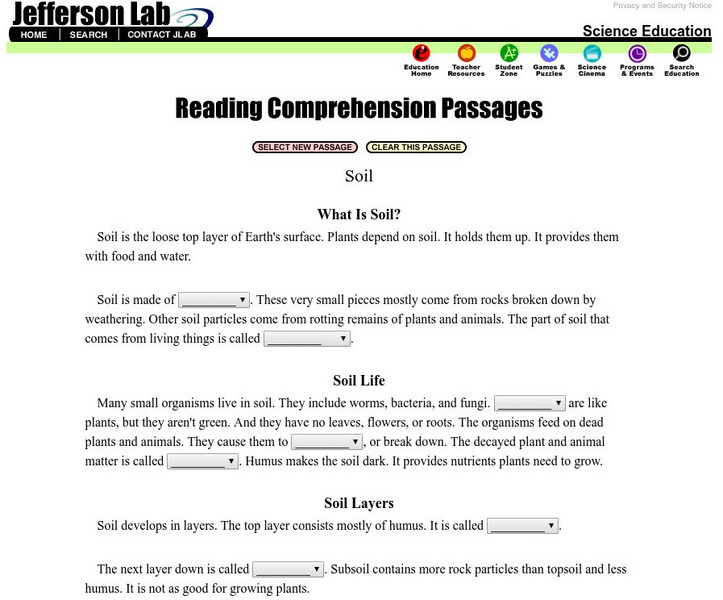

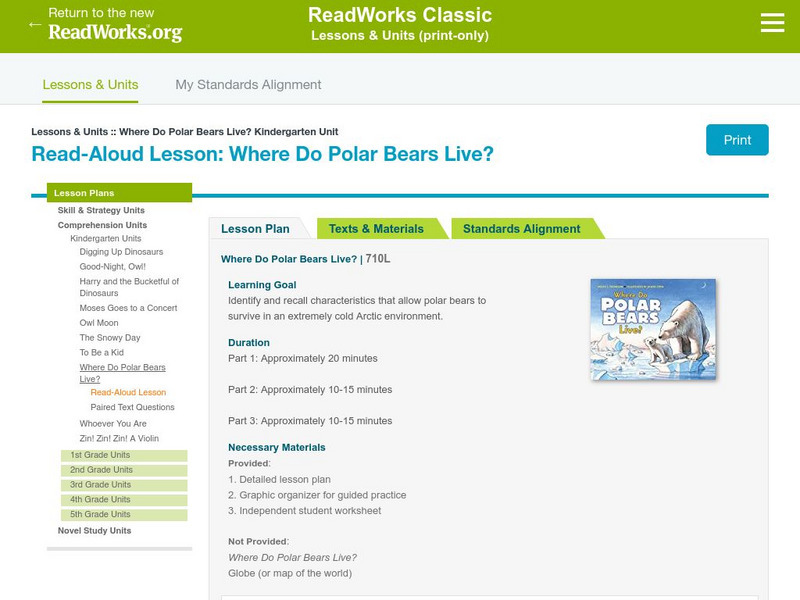



![Constitutional Rights Foundation: Margaret Thatcher and Conservative Politics in England [Pdf] Article Constitutional Rights Foundation: Margaret Thatcher and Conservative Politics in England [Pdf] Article](https://d15y2dacu3jp90.cloudfront.net/images/attachment_defaults/resource/large/FPO-knovation.png)


